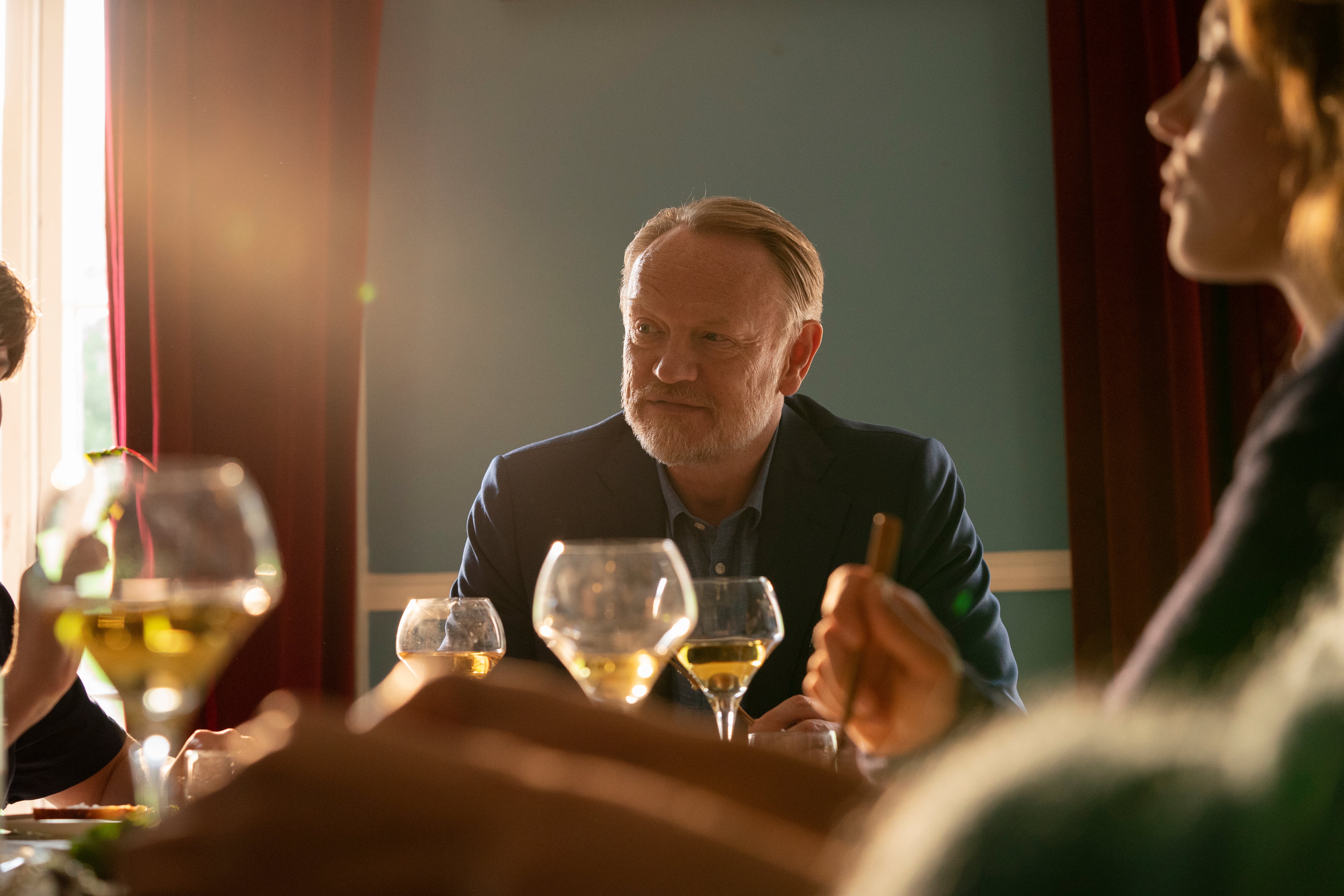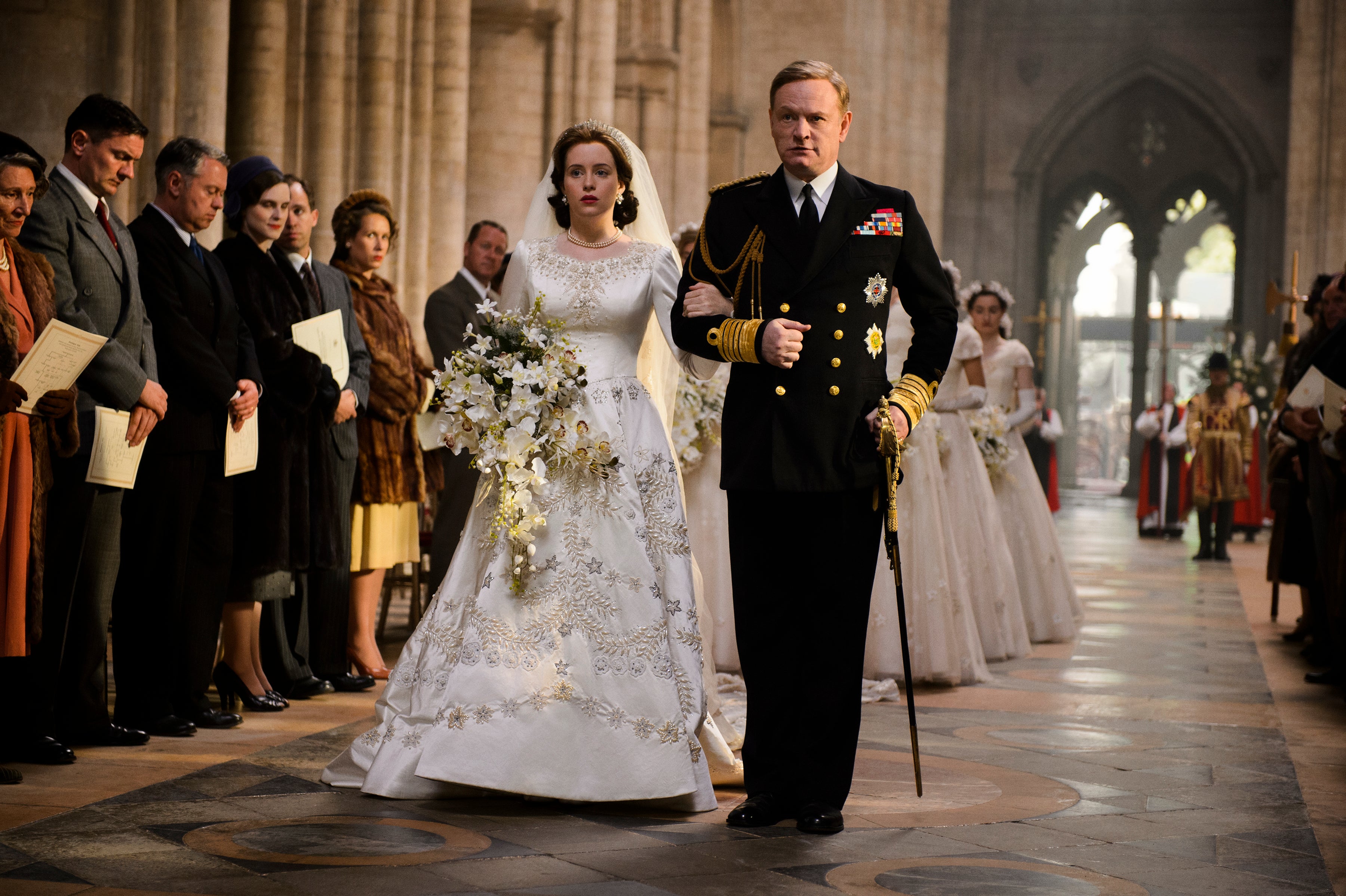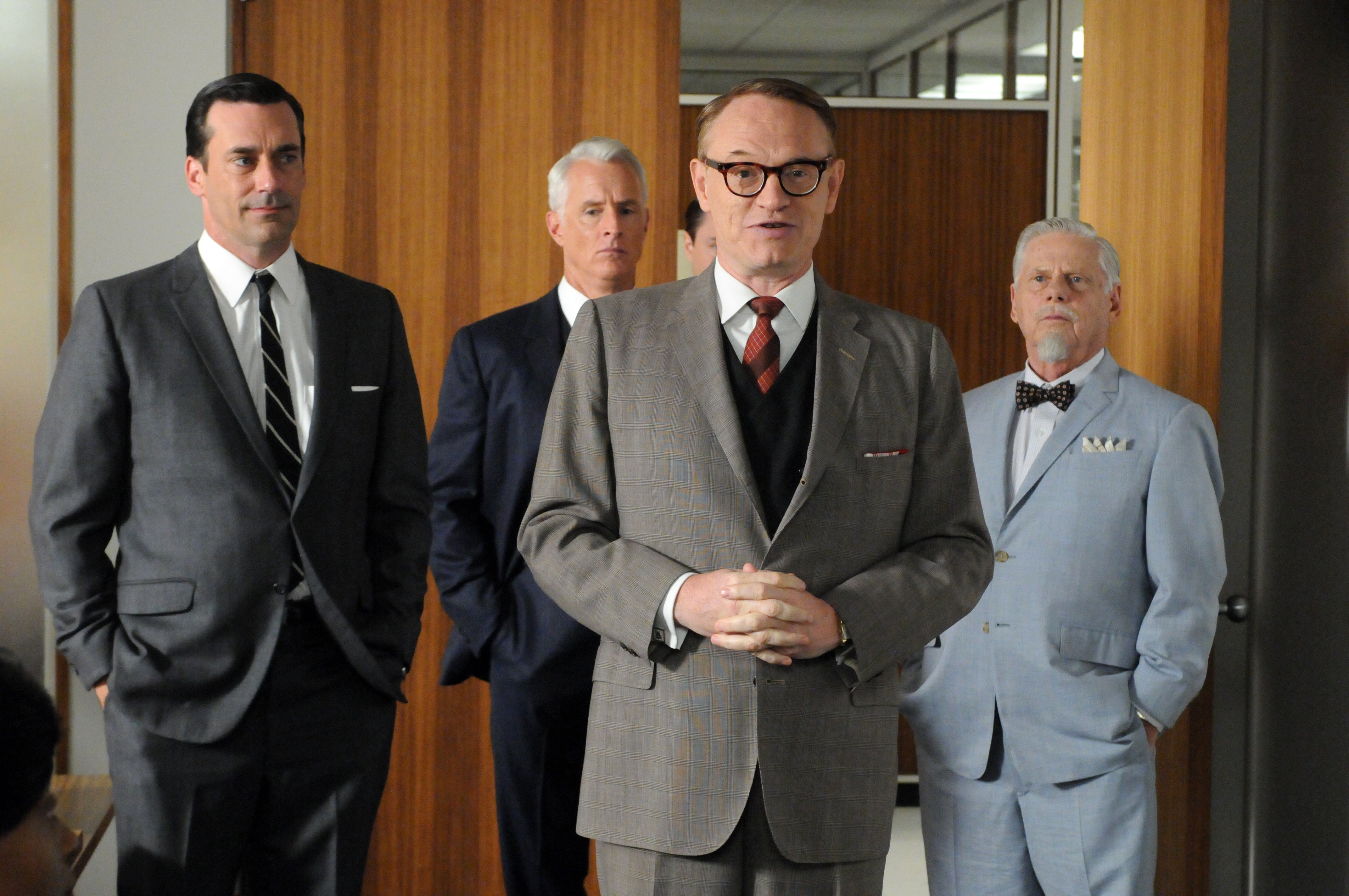Jared Harris: ‘I watched some of my father’s pitfalls, and would try to avoid them’
After a star-making role in ‘Mad Men’, the English actor made television behemoths out of ‘The Crown’ and ‘Chernobyl’. He tells Alexandra Pollard why you don’t have to like the characters you play – especially when it comes to his new series, ‘The Beast Must Die’


Film studios no longer try to make stories that will entertain people above the age of 24,” says Jared Harris, who, at 59, hasn’t been that age since Back to the Future came out. “And because they ignored this market, there was a vacuum, and TV and streaming platforms have all stepped into it. They’re telling stories to people who have lived lives. They’re more challenging stories and they take bigger risks.”
And they usually star Jared Harris. It’s hard to think of an actor with a more impressive roster of TV shows than Harris. You could call him a late bloomer. The English actor was 47 when he signed on for a single episode of Mad Men, but he so impressed the show’s creator Matt Weiner as the smug oddball Lane Pryce that he stayed for 34 more. After that, he helped make television behemoths out of The Crown and Chernobyl – in the former as King George VI, father of Claire Foy’s young queen, and in the latter as a heroic Soviet chemist, the sole person to grasp the gravity of the nuclear plant disaster. Most recently, he was in The Terror, playing a dour, fatalistic ship captain on an ill-fated Arctic exhibition.
He’s superb in all of them, with that distinctively strangulated voice and permanently arched eyebrow, which he variously employs to look regal (The Crown); sceptical (Mad Men); infuriated (Chernobyl); inebriated (The Terror). One step removed from a conventional leading man and all the better for it, Harris doesn’t steal scenes so much as elevate them and everyone around him.
In the new series The Beast Must Die, meanwhile, he plays “such a prick”. That’s how Harris describes him, speaking over Zoom from the home in LA where he spent most of lockdown (during which “my wife and I discovered that we married the right people”). There was a three-month stint on the Isle of Wight in the middle of that, where he filmed The Beast Must Die – the first original from streaming service BritBox. George is a bourgeois businessman – the kind of person who has a huge portrait of himself over the fireplace, wears loafers with no socks and hates his own son for not being cool. When a grieving mother (Cush Jumbo) becomes convinced that George is responsible for the hit-and-run that killed her six-year-old son, she takes a ferry to the island and infiltrates his life, posing as an aspiring crime writer while plotting to avenge her child’s death.
George is a hard person to like, I tell Harris, whose eyebrow is in sceptical mode today. “That conversation is very dangerous,” he says. “When you’re creating a drama, if it gets derailed to: ‘Well, who do we like and who don’t we like?’, you’re gonna get into trouble. They say you have to like every character you play, and I don’t know if that’s true. George is a total narcissist. If you make him feel good about himself, then he values you, and if you don’t, then he belittles you. What is there to like about that?”
Still, Harris has never been one for straight-up baddies. Mad Men’s Lane Pryce started out as the antagonist of the piece, but Harris imbued him with so much humanity that he somehow became the show’s emotional lynchpin; his character’s suicide was one of its biggest gut punches. “When you play bad guys, as soon as the audience figures out who the bad guy is, what they’re doing and who they are, it’s end of discussion,” says Harris. “And you just drop back into the bad guy’s plot to know that, yes, it’s still going on. And you get the obligatory ‘Everything is going according to plan, old maestro’” – I should note that he performs the hell out of this line – “and then you shoot somebody in the head and then you go back to the regular story. It’s very reductive. So I wanted to connect with the audience. I wanted them to be fascinated. I wanted them to try and figure out what makes him tick.”
Harris is more gregarious than I expected. Dressed in a black jumper with facial hair somewhere between stubble and a full beard, he has the air of someone supremely at ease with himself. He speaks half a decibel louder than is strictly necessary and at one point preempts what my question is going to be before I’ve finished the second word. Even when he’s being self-deprecating – “the longer I talk, the more I’m becoming a bigger and bigger idiot” – there’s a playful bravado there. I don’t know if it’s in spite of all this or because of it that I like talking to him.

His confidence is surprising only because I’ve read that he’s a quiet, unassuming presence – but that’s usually said in comparison with his father. The Oscar-nominated Irish actor Richard Harris, to whom Jared bears a striking resemblance, was a hard-drinking hellraiser who would show up to talk shows with black eyes from fights the night before. Harris’s mother, the Welsh socialite Elizabeth Rees-Williams, was hardly a shrinking violet, either – she would turn up to visit him at boarding school in such glamorous outfits that his classmates would clamour to catch a glimpse of her.
“There were big, big, big personalities around,” says Harris of his childhood, “so it was quite hard to get your hands on the conch shell.” At 17, he went to college in America. “I think that I knew I needed to get away, because on some level, there was a suffocation there. I just wanted to go out there, where no-one knew anything about me, and just start from scratch and figure out, ‘Who am I and what am I interested in?’” After America, he went to drama school – though he now realises that he learnt just as much about acting at the dinner table.

Watch Apple TV+ free for 7 day
New subscribers only. £9.99/mo. after free trial. Plan auto-renews until cancelled.
ADVERTISEMENT. If you sign up to this service we will earn commission. This revenue helps to fund journalism across The Independent.

Watch Apple TV+ free for 7 day
New subscribers only. £9.99/mo. after free trial. Plan auto-renews until cancelled.
ADVERTISEMENT. If you sign up to this service we will earn commission. This revenue helps to fund journalism across The Independent.
“Some of the best lessons I got on how to perform were from watching my dad tell a story for the 50th time,” he says. “And I loved it. At dinner, you’d say, ‘Tell that story again, Dad.’ I would notice how he would change it, embellish parts of the story that didn’t exist before because he saw people were interested. I saw the parts of the story that never changed. It was tremendously insightful in that way.”

Most kids would be irritated by hearing their dad repeat the same story. Harris was just in awe of his. “He was a tremendously forceful personality – I mean, not forceful in an aggressive sense. You knew the person had entered the room seconds before he had, without him saying anything. He had tremendous energy and vitality and curiosity, and you were flattered when he was paying attention to you. It’s hard to describe. It’s a charged energy. And I enjoyed how much he enjoyed being him. He would often say that the greatest part he ever played was Richard Harris. And on some level, it was a construct, and he was aware of it being a construct.”
There was a drawback to all this: Richard’s reputation meant he wasn’t always taken seriously as an actor. Was Harris conscious of not following that path? “I definitely watched some of the pitfalls, and would try to avoid them,” he says. “I’ve been more focused on trying to create a reputation for myself as an actor.”
Doing so required a two-pronged approach: convince people you’re talented, and convince them you’re not a liability. “When you go on auditions,” says Harris, “you sit and chat to the person, and then you do the auditioning part. A lot of actors mistake what that chatting part’s about – they think you’re trying to form some sort of rapport with the person. All they’re interested in is finding out that you’re not a lunatic.” How long did it take Harris to figure that out? “Errrm.” He laughs. “I would say a while.”

He once sat in on some auditions for Mad Men. “I was just struck by how many actors shot themselves in the foot within seconds. The variety of ways that they had for self-sabotage was just fascinating.” And what if they then gave an incredible reading? “If they gave an incredible reading, they were back in. But you had to be more incredible than someone else who’d shown up. There’s a lot of really talented actors out there who are either waiting for the right opportunity, or they’ve had the right role but the thing didn’t get seen. Let’s take The Terror. The Terror disappeared in the UK.”
It did until a few months ago, at least. The show aired in the UK on BT TV in 2018 – “but no one had BT TV”, says Harris with a sigh, so it sank without a trace. It wasn’t until March of this year that the BBC picked it up. “I think that was up there with some of the best work that I’ve been involved in,” says Harris. “As good as Mad Men or Chernobyl or The Crown.”
Does it matter to him how many people see his work? “Yeah. Course. You work your socks off and you believe in it and you want people to see it, right?” His eyebrow lifts another inch. “Otherwise, we’re back to performing soliloquies from Hamlet in our bathroom.”
The Beast Must Die premieres on 27 May on BritBox
Join our commenting forum
Join thought-provoking conversations, follow other Independent readers and see their replies
Comments


Bookmark popover
Removed from bookmarks